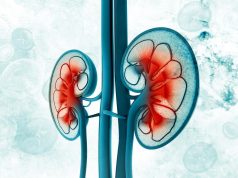Largest absolute reductions in stage IV diagnoses were seen for lung, colorectal, pancreatic cancer
By Elana Gotkine HealthDay Reporter
MONDAY, Nov. 10, 2025 (HealthDay News) — Multicancer early detection (MCED) tests can increase earlier-stage diagnoses and reduce late-stage diagnoses, according to a study published online Nov. 10 in Cancer.
Jagpreet Chhatwal Ph.D., from Harvard Medical School in Boston, and colleagues examined the potential of a MCED test on stage shift in the U.S. general population in a microsimulation model of 14 solid tumor cancer types. Ten-year disease progression was simulated for a population of 5 million U.S. adults aged 50 to 84 years.
The researchers found that supplemental MCED testing led to increases of 10, 20, and 34 percent in stage I, II, and III diagnoses, respectively, over 10 years, and to a 45 percent decrease in stage IV diagnoses, relative to the standard of care. For stage IV diagnoses, the largest absolute reductions were seen in lung, colorectal, and pancreatic cancer (400 versus 765, 96 versus 236, and 89 versus 211 per 100,000, respectively). Cervical, liver, and colorectal cancer had the largest relative reductions (83, 74, and 59 percent, respectively).
“Our analysis shows that multicancer blood tests could be a game changer for cancer control,” Chhatwal said in a statement. “By detecting cancers earlier — before they spread — these tests could potentially improve survival and reduce the personal and economic burden of cancer.”
Several authors disclosed ties to biopharmaceutical and health insurance companies, including Exact Science Corporation, which funded the study.
Copyright © 2025 HealthDay. All rights reserved.








